
Announcing Grant Recipients from UBC Sauder's Centre for Climate and Business Solutions 2025
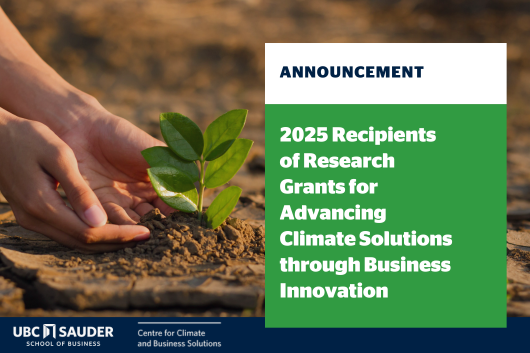
2025 Grant Recipients
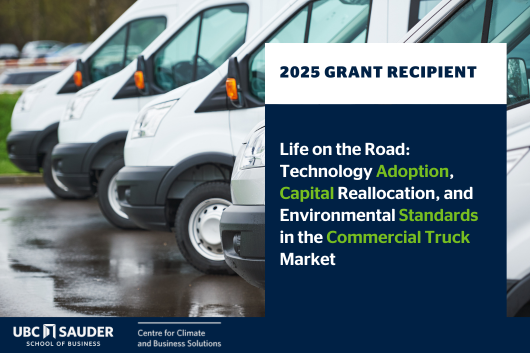
Life on the Road: Technology Adoption, Capital Reallocation, and Environmental Standards in the Commercial Truck Market
The commercial trucking industry is essential to global supply chains but faces increasing pressure to adopt cleaner technologies due to stricter envi...
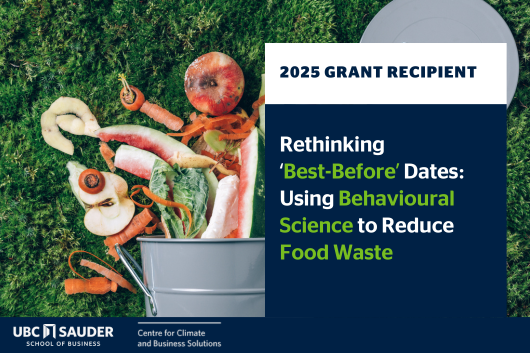
Rethinking ‘Best-Before’ Dates: Using Behavioral Science to Reduce Food Waste and Resulting Carbon Emissions
Food waste is a major contributor to carbon emissions, with a significant portion stemming from consumer misinterpretation of "best-before" dates.
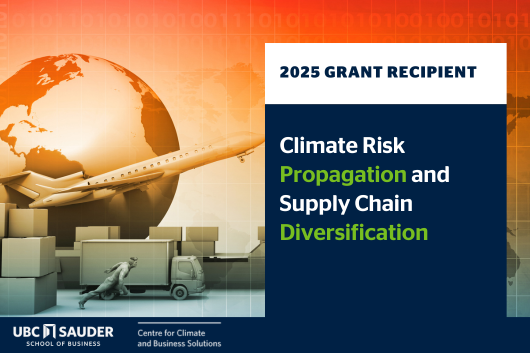
Climate Risk Propagation and Supply Chain Diversification
Climate risks, such as extreme weather events, resource shortages, and regulatory shifts, can disrupt global supply chains, leading to financial losse...
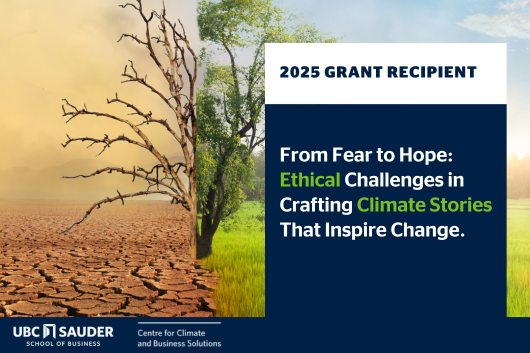
From Fear to Hope: Ethical Challenges in Crafting Climate Stories That Inspire Change
Climate communication plays a crucial role in shaping public perception and driving action on environmental issues. However, striking the right balanc...

Claving, Anesthetic and Reuse interventions in High Volume Surgical Processes
High-volume surgical processes generate significant medical waste, particularly from single-use instruments and anesthetic agents.
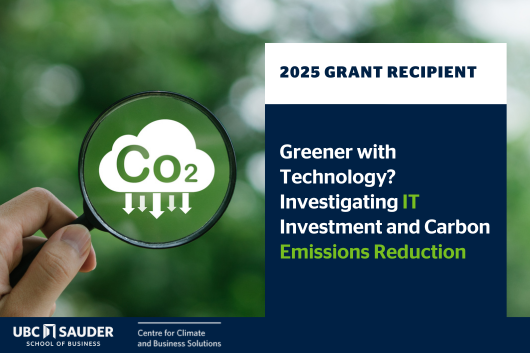
Greener with Technology? Investigating IT Investment and Carbon Emissions Reduction
As businesses seek to reduce their carbon footprint, information technology (IT) investment has emerged as a potential driver of sustainability.
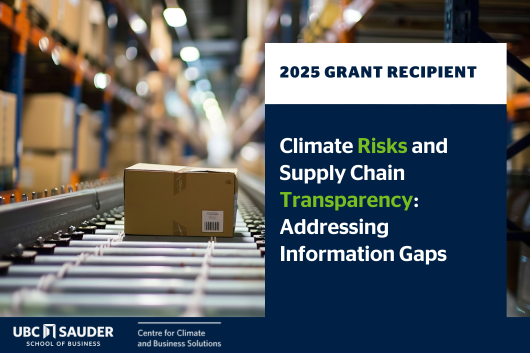
Climate Risks and Supply Chain Transparency: Addressing Information Gaps
Supply chains are increasingly exposed to climate risks, including extreme weather events, resource scarcity, and regulatory shifts.